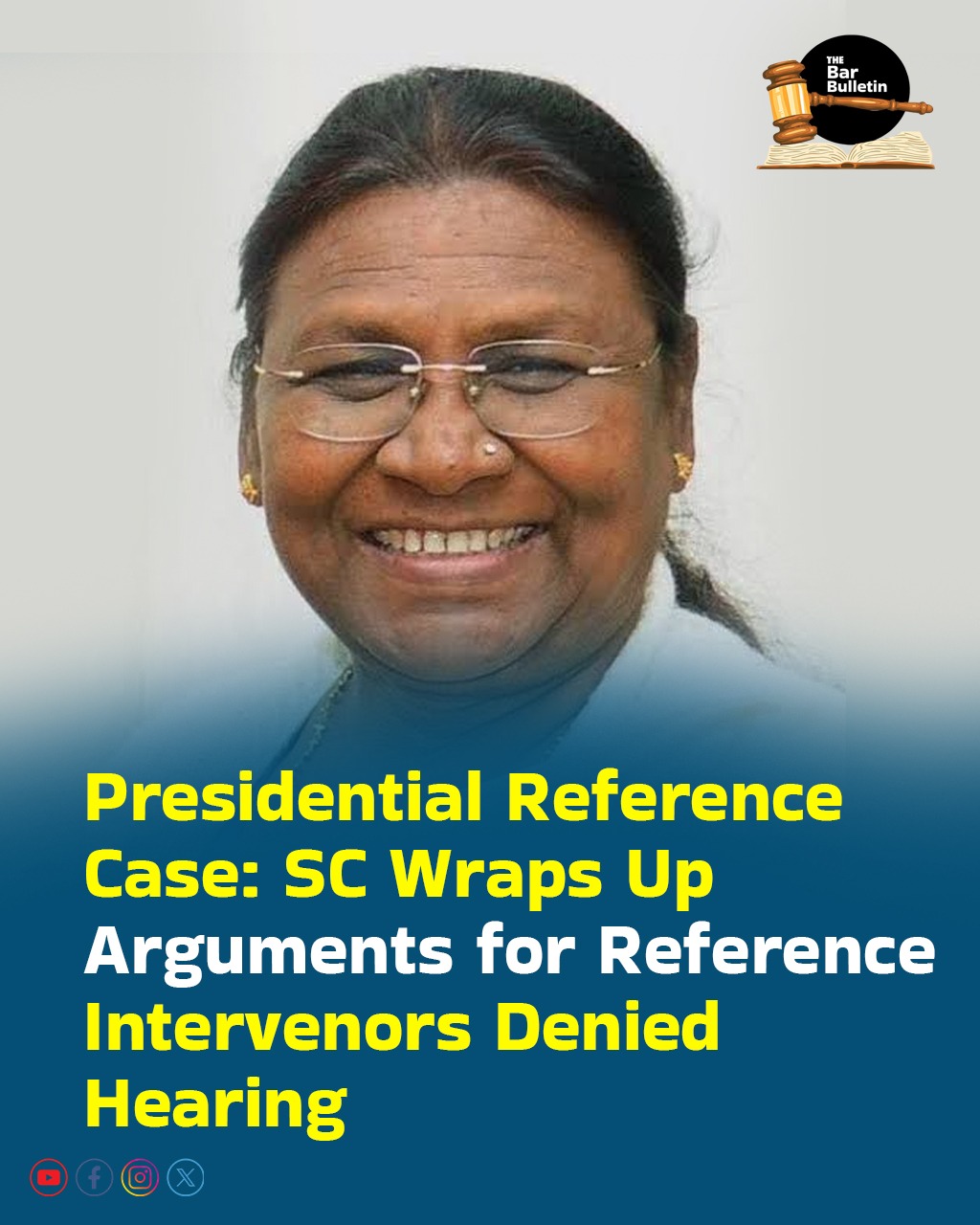On August 26, the Supreme Court entered the fourth day of hearings in the Presidential reference arising from the constitutional deadlock in Tamil Nadu, where the Governor had kept several Bills passed by the State Legislature pending for months without granting assent under Article 200 of the Constitution. The State government approached the Court, alleging that the Governor’s inaction was obstructing governance and undermining the constitutional framework. The reference seeks clarity on the scope of the Governor’s discretion under Article 200.
Petitioners’ Submissions
On behalf of the States, it was argued that the framers of the Constitution never intended Governors to wield an unaccountable veto over the legislative will of elected representatives. Article 200, when read contextually, requires the Governor to act on the aid and advice of the Council of Ministers, with only narrowly defined discretion.
Counsel contended that indefinite delay in granting assent violates responsible government, disrupts federalism, and disturbs the balance of power between legislatures and constitutional heads of State.
The phrase “as soon as possible” was stressed as a binding requirement, obligating the Governor to act within a reasonable timeframe.
Indefinite inaction by Governors, it was urged, constitutes a constitutional wrong warranting judicial correction.
Respondents’ Submissions
On the other side, senior advocates appearing for the Governors and supporting States strongly defended the existing framework of Article 200.
Harish Salve argued that since the framers had already inserted safeguards for money Bills in Article 207, they deliberately left the Governor’s power under Article 200 unqualified. If the Constitution did not expressly impose limits, the judiciary could not create them through interpretation. He also cautioned against the Court imposing timelines on Governors or the President, noting that the Constitution consciously avoided prescribing deadlines for such high authorities.
Maninder Singh emphasized that the Governor’s powers under Article 200 to assent, withhold assent, or reserve the Bill for the President are discretionary. He clarified that “withholding assent” amounts to final rejection, not mere delay, and therefore the phrase “as soon as possible” applies to the entire provision, not exclusively to that option.
He relied on Constituent Assembly Debates, quoting Dr. B.R. Ambedkar, to argue that vesting limited discretion in Governors was a deliberate design and not inconsistent with responsible government. He further pointed out the textual distinction between the mandatory “shall” in the main provision and the permissive “may” in the proviso, which reflects that discretion lies with the Governor, not the Council of Ministers.
The Respondent side also cited judicial precedents where Bills did not lapse despite prolonged pendency of gubernatorial or presidential assent, arguing that this demonstrated the framers’ intent to avoid fixed timelines. Judicially prescribing one, they contended, would amount to rewriting the Constitution.
Proceedings
At the close of the day’s session, the Court recorded that arguments in support of the Presidential reference had been concluded, while clarifying that intervenors would not be permitted to address the Bench.
Appearances
Senior Advocate K.K. Venugopal for the State of Kerala
Dr. Abhishek Manu Singhvi, Senior Advocate for the State of Tamil Nadu
Tushar Mehta, Solicitor General of India
Senior Advocates Neeraj Kishan Kaul and Maninder Singh for the States of Madhya Pradesh and Rajasthan
Senior Advocate Mahesh Jethmalani for the State of Chhattisgarh
Senior Advocate Harish Salve for the State of Maharashtra
ASG K.M. Natraj for the State of Uttar Pradesh
ASG Vikramjeet Banerjee for the State of Goa



